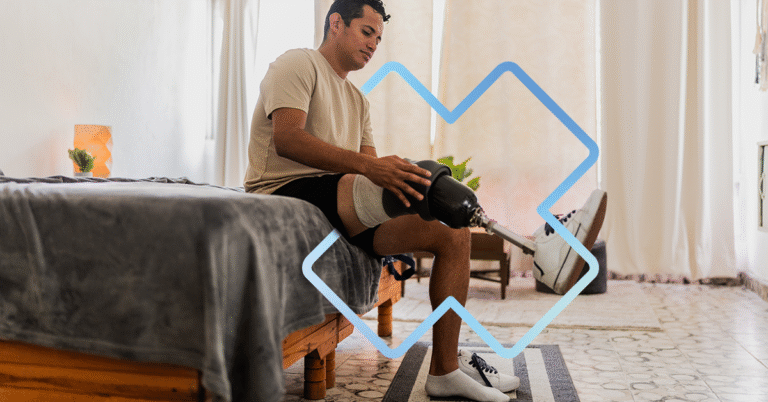When your jaw clicks
Like any joint, the TMJ includes synovial fluid, a capsule, ligaments, muscles, tendons, and a disc between the two articulating surfaces. Sometimes, due to mechanical issues, the disc can shift forward. The clicking sound you hear is caused by the disc moving forward or snapping back into place. An occasional, painless click is not concerning. However, if the clicking occurs with every chewing motion, the joint may be more prone to locking and wear over time.
What causes TMJ disorders?
There are many possible causes of TMJ disorders, including:
- Bite misalignment
- Poor posture
- Muscle imbalances
- Mobility issues in the cervical or thoracic vertebrae
- Harmful habits, and more.
A qualified therapist can identify these factors and work with you to address each one effectively.
Tips to reduce jaw clicking
1. Mind your posture
A forward head posture increases pressure on the jaw joint and can also cause neck pain. To sit upright, imagine a string pulling the top of your head gently upward (while staying relaxed).
Do this movement as often as possible throughout the day. Setting a recurring reminder on your phone can help.
2. Muscle control exercise
If your jaw clicks when you open your mouth, try this test: Place the tip of your tongue on the roof of your mouth and open your mouth while keeping your tongue in place. Did the clicking stop? If yes, do 6 sets of 6 repetitions of this exercise each day.
3. Watch for habits
Do you bite your nails? Chew gum or pen caps often? These habits overwork your jaw joint. Try to avoid them.
Also check if you always chew on the same side of your mouth. Preference is normal, but if your jaw clicks, it’s better to alternate sides.
My jaw doesn't click, but...
TMJ rehabilitation can also address several other symptoms:
- Neck or facial pain
- Numbness or tingling around the jaw
- Pain when chewing, clenching, or yawning
- Jaw locking
- Clicking or grinding sounds when opening the mouth or chewing
- Limited jaw movement
- Changes in how your upper and lower teeth align
In any case, jaw pain should be taken seriously. Learn more about this expertise and contact us to book an appointment at a clinic near you today.






